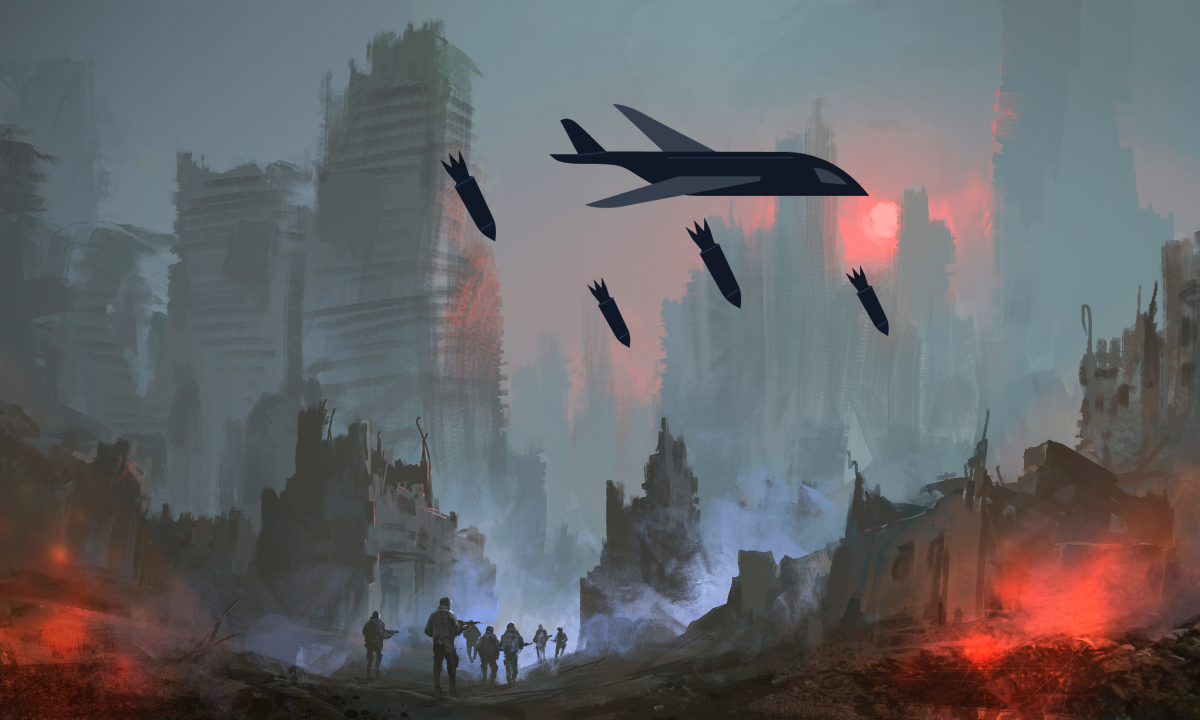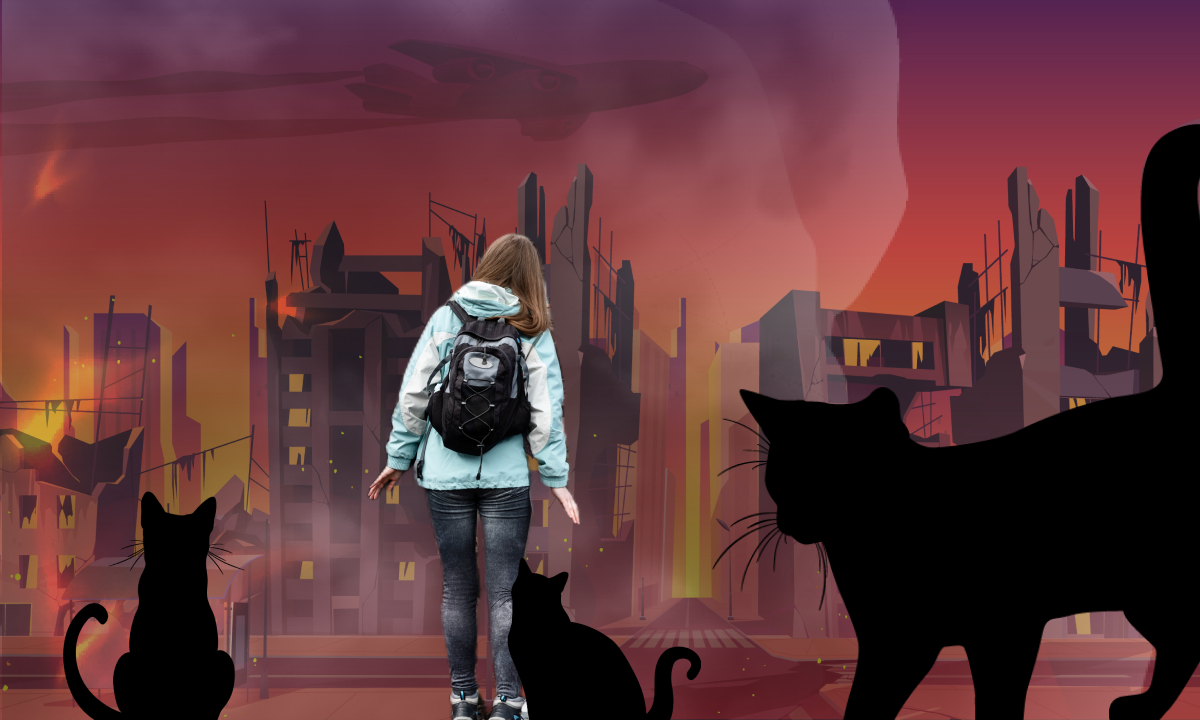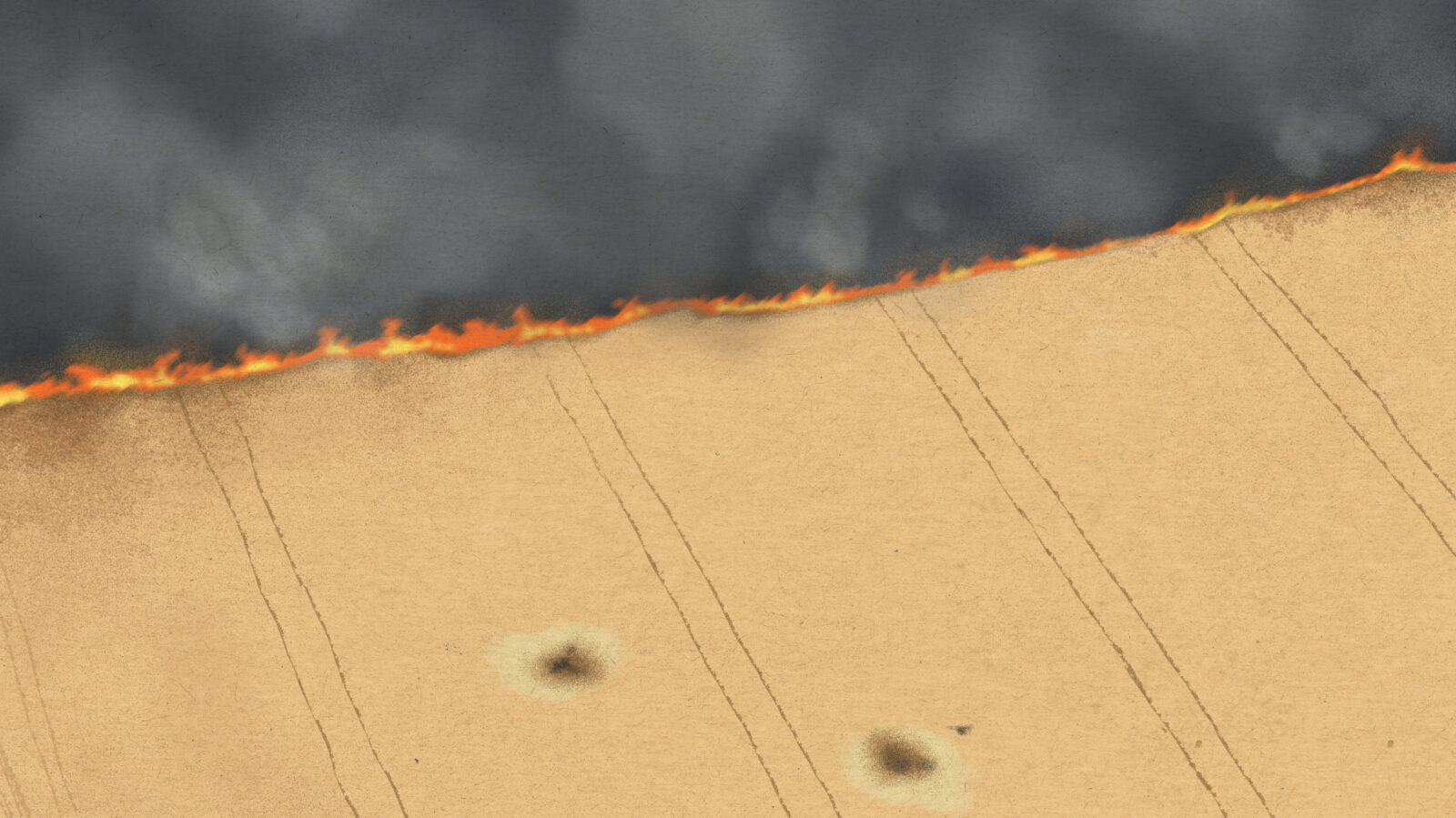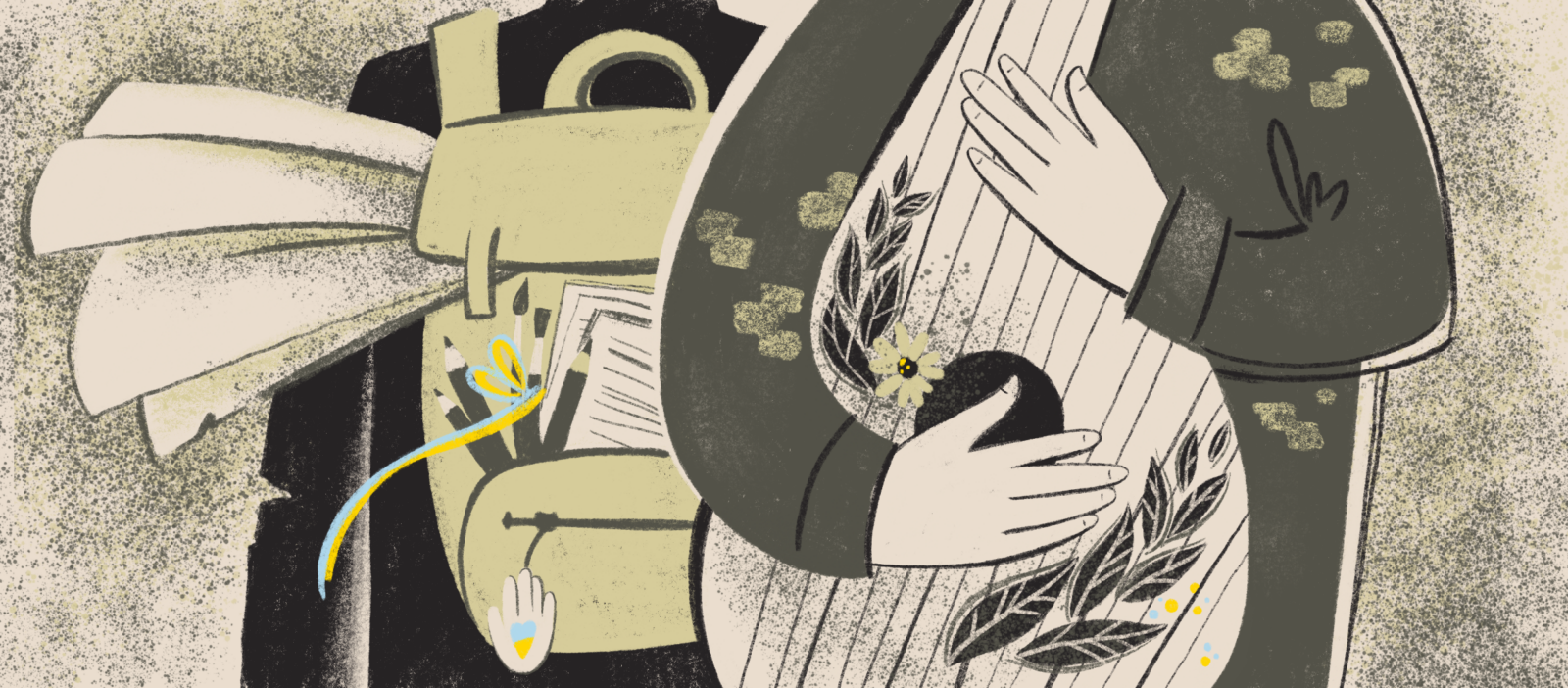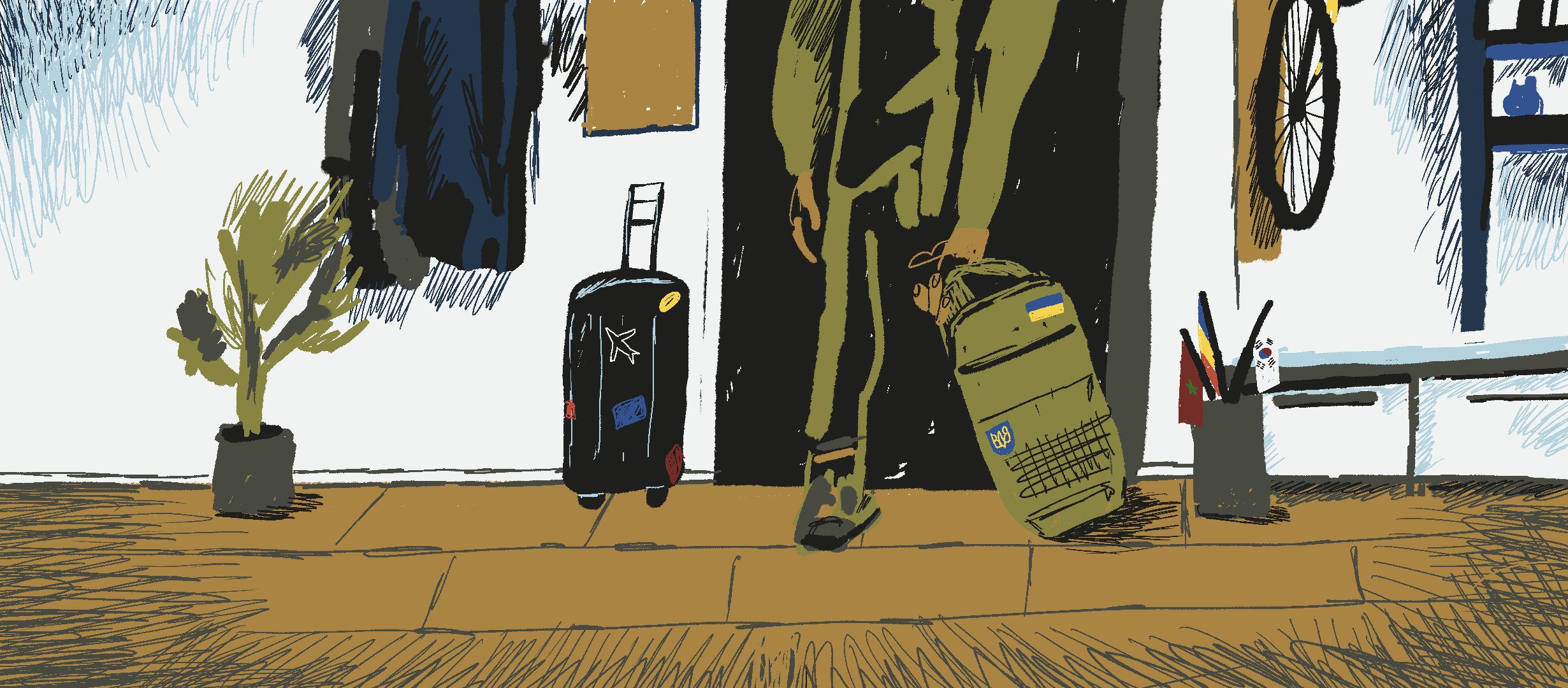Illustrated by Tanya Gushchina
“I was ‘liberated’ from everything. From my job, from social activism, and from my house,” says Hanna Fomenko. She is 43 years old, a lawyer by training. She is also a single mother of 21-year-old Angelina, a girl with special educational needs.
In their native village in the Donetsk Region, Hanna and her friend set up a non-governmental organization. They opened an inclusive sports ground for kids and arranged the park area to meet the needs of disabled people. They also established cooperation with the Ukrainian Women’s Fund with participation of the UNDP.
Now Hanna is staying with her friend Olya in Lviv. Hanna’s mother is still in her home village with no way of leaving it. “Our village has been occupied. My cousin and his wife have been killed. There is no electricity, water, gas or medicines in the village. In some cases, people with heart disease or diabetes died because they lacked the necessary drugs. My aunt has a generator to charge cell phones with. So, once or twice a day, I can hear my mother’s voice. Sometimes they jam the phone signals. When I cannot talk to my mum, I feel like I’m dying myself,” says Hanna.
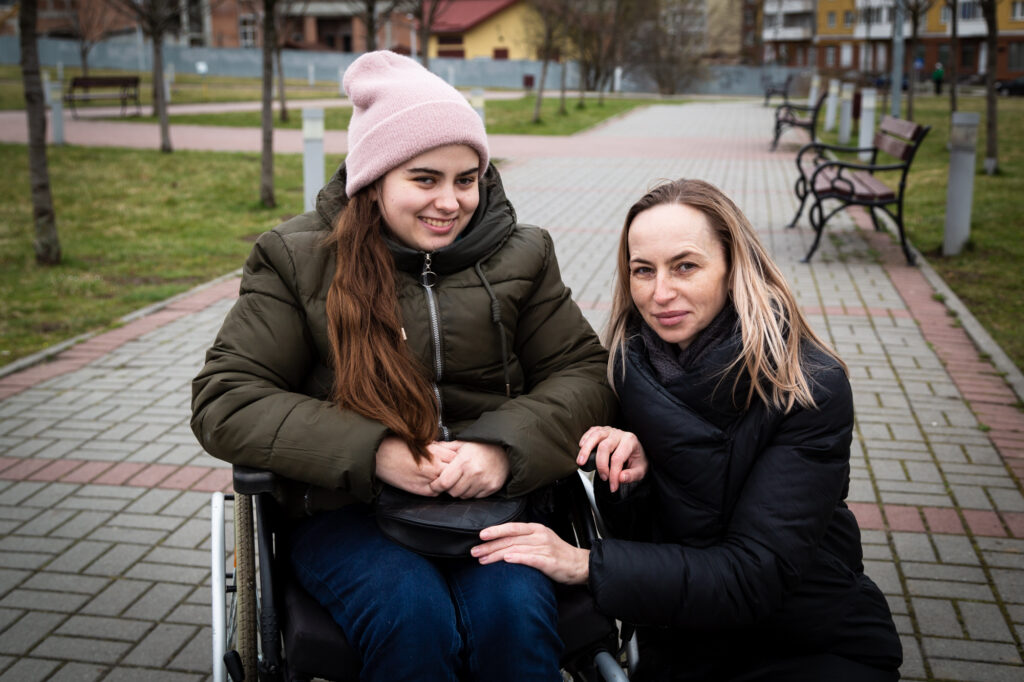
A bomb fell right beside her mother’s house, so living there became impossible. That’s why she moved to her sister’s. Hanna’s aunt has three grandchildren. Hanna remembers how their neighbor was torn to pieces by a shell that hit his house. The youngest of her aunt’s grandchildren, who is one and a half years old, was also slightly hurt with the fragments. Hanna’s mother is a trained surgery nurse, so she managed to provide first aid.
Frequent shellings prevent people from visiting their relatives or friends in the village. The locals created a Viber group chat to keep in touch and share information about each other. Hanna hasn’t been in touch with her second cousin since March 13.
“Everyone is helping each other. My aunt has two cows, so she gives the milk she gets from them to other people. There was this disabled old man living nearby who couldn’t get down to the bomb shelter by himself. His son carried him down, but the house was hit with a shell, and they were stuck there. Other neighbors pulled them out. A bit later, the old man died because of nervous exhaustion, and his son evacuated,” Hanna says.
Hanna and Angelina couldn’t walk down to the bomb shelter. They stayed in the bathroom surrounded with pillows, and prayed. The scariest thing was to hear jets flying over the house.
Hanna and Angelina don’t own a car, and no green corridors with buses were organized for their village. The locals evacuated themselves at their own risk.
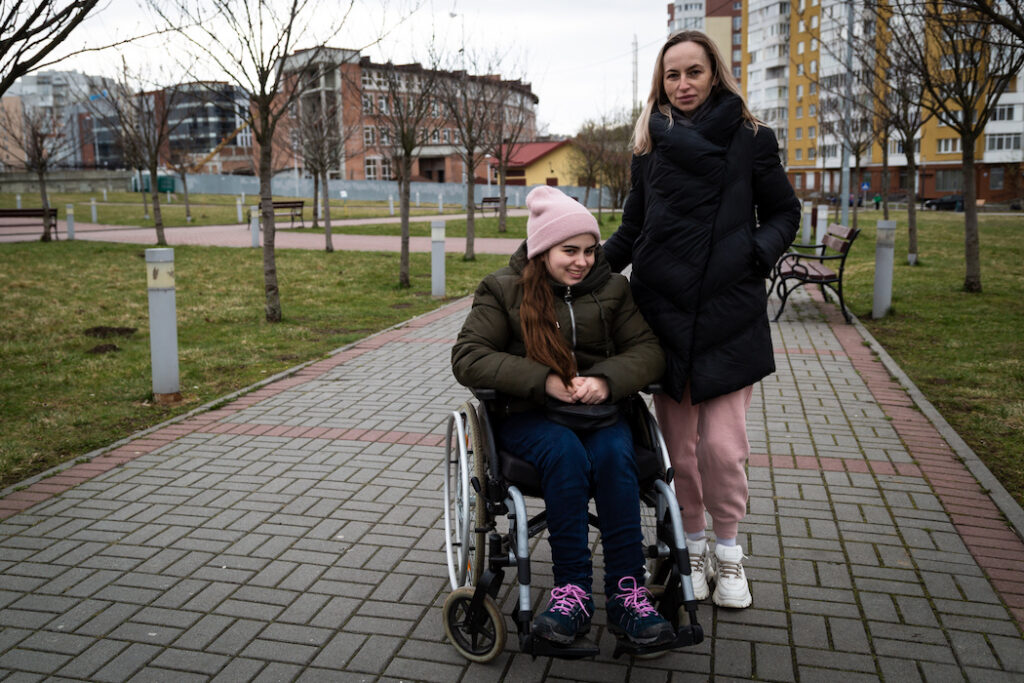
Hanna and Angelina managed to evacuate before the occupation started. On March 7, their relatives took them in their car. It was important for Hanna to fit Angelina’s wheelchair into the trunk, because the girl cannot walk. Their way to Lviv took four days. Sometimes they couldn’t drive more than 100 km in a day.
Hanna’s friend Olya was the one who called every day and persuaded her to evacuate. The two women became close friends when they were treating their children who have special needs. Another reason that prompted Hanna to evacuate was the fact that Angelina became very nervous and stopped eating.
Hanna’s village got caught in the line of fire. “All sorts of things were flying back and forth. People were buried in their yards, and that was in the best of cases. There were drunk Russians everywhere, shooting their automatic guns in the air,” says Hanna. Many of the locals she knows remain in the village, unwilling to leave the houses where they have lived their whole lives.
In Lviv, Hanna and Angelina are getting their lives in order. Hanna took her daughter to a training and rehabilitation center where the therapists helped Angelina to cope with the situation. Hanna jokingly says that her friend Olya also has a sort of home therapist. It’s her affectionate dog Larry who can feel their mood perfectly.
“I have realized the meaning of the word ‘lost’ to the fullest extent. You get lost when you lose everything and have no home,” reflects Hanna.
The women left all their keepsakes and valuables at home. Angelina only took the photos of her late grandpa and her friend. The girl misses the special bicycle her mum helped her to ride. Hanna hopes that her mother will be able to evacuate and bring them the hard drives with “all their memories” and their sphinx cat.
Hanna says there are many stray cats and dogs in the village now, because sometimes people have to leave their pets behind. At the edge of the village, there was an agricultural enterprise with cows. Now there is no one to look after them, so they walk about the village and bellow.
“Mom says the bellows of the unmilked cows are horrible. The village outskirts have been mined, and the cows often blow up on mines,” says Hanna. “This war seems more brutal than World War II. The weapons are more powerful. But I believe we’ll come back and rebuild everything. Our village is Ukraine. I want to return to the Donetsk Region, back to Ukraine”.
Translated by Tetiana Vyshnevska





